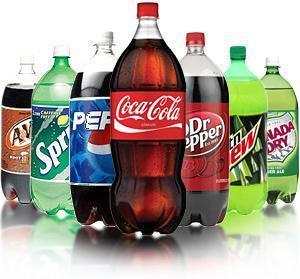Soda Tax: What It Means For Philadelphians, Schools and Rec. Centers
WRITTEN BY: IZZY UKNIS
In a city that struggles to fund education and holds one of the highest obesity rates in the country, Mayor Kenney has launched a campaign that could begin to solve some of these issues.

According to Philly.com, as of 2008, about 64% of adults and 57% of children ages 6-11 were either overweight or obese in Philadelphia. According to the same source, in North Philly alone, approximately 70% of the population was overweight or obese. Though this could be attributed to an overwhelming cheesesteak culture in the city, the problem has been traced to a lack of available and affordable healthy options.
This is evident in the price comparison between water and soda. According to peapod.com, an online grocery-shopping website, the average price of a 1-liter bottle of water is $2.50, while the average price of a 1-liter bottle of soda is $1.00. This drastic price difference could potentially motivate a family to save money by purchasing the drink that is much worse for their health.
According to Philly.com, Philadelphians drink approximately 60 million gallons of sugar-sweetened beverages annually. If those 60 million gallons of sugar had been replaced with 60 million gallons of water, maybe Philadelphia wouldn’t be number 1 on the list of cities with the highest rates of obesity. However, there is currently no monetary incentive.
Mayor Kenney’s solution: a three-cents-per-ounce tax on sugary beverages and soda, not including diet soda. This idea should sound familiar, as former Mayor Nutter attempted two times to place a 2-cents-per-ounce tax on sugary drinks. Therefore if history repeats itself, Kenney’s proposal could be in some trouble.
Much to the delight of the pro-soda lobbyists and the Big Soda companies of 2012, City Council, including Kenney, shut down the proposal. This means that in order to even be considered, Kenney’s proposal must have a projected positive impact that will outweigh any significant negative outcome.
According to Philly.com, the tax could potentially bring in about $432 million over the span of five years. Kenney plans to use this money to fund universal pre-school and community schools, as well as to upgrade parks and recreation centers.
He argues that even though people believe that this is a tax on the poor, it will be benefiting poor neighborhoods and communities that are in need of this type of funding.
Others argue that jobs will be lost, and that the city of Philadelphia shouldn’t need an economic incentive to make a healthy choice.
Though both arguments are valid, it is important to note that two studies from the Rudd Center for Food Policy and Obesity at Yale University show that this tax is very likely to reduce consumption of sugary drinks. As far as obesity rates declining due to the reduced consumption of sugar, one of the studies predicts that a tax, which raises the cost of soda by at least 20% “could lead to an average annual reduction of 3.8 pounds per year for adults.”
Aside from the aforementioned studies, a simple Google search leads to countless other studies to support the effectiveness of a soda tax and the healthier lifestyle that accompanies it.
If the money from the tax is going to go toward pre-school education, then those pre-school teachers could potentially begin teaching healthy habits at an early age as an additional strategy to defeat obesity.
Undoubtedly, it is tough to break a cycle, especially when there are economic concerns and a need to provide for a family. However, Philadelphia is the City of Brotherly Love. It is important that a community of people watches over each other and helps each other make the right decision. Maybe this tax is a step in that direction.




